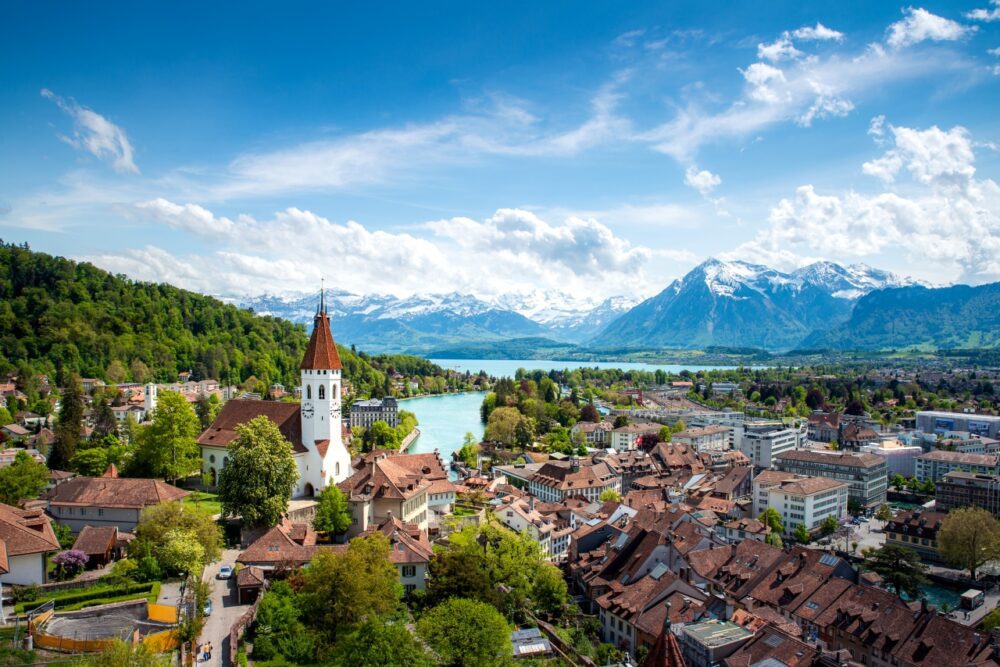
Introduction
Switzerland is one of those countries that feels like stepping into a postcard. It’s where snow-capped mountains rise majestically above crystal-clear lakes, charming villages nestle in green valleys, and cities combine modernity with centuries of history. From the world-famous Alps to the picturesque towns of Zurich and Lucerne, Switzerland offers an almost surreal beauty, while its clean streets, punctual trains, and excellent infrastructure make it a traveller’s dream.
I remember my first trip to Switzerland vividly. It was the perfect mix of adrenaline-filled outdoor adventure and quiet, peaceful moments by alpine lakes. One day I was hiking in Zermatt with the Matterhorn towering above, and the next I was enjoying fondue by the lake in Geneva. Whether you’re drawn by the natural beauty, the culture, or the delicious food (hello, Swiss chocolate!), Switzerland offers something for everyone. Here’s why this stunning country should be at the top of your travel list.
Table of Contents
Reasons You Should Visit Switzerland
1. Unparalleled Natural Beauty
Switzerland’s landscapes are legendary. The Swiss Alps offer some of the most dramatic mountain scenery in Europe, with towering peaks like the Matterhorn and Jungfrau attracting climbers, hikers, and nature lovers alike. One of my favourite experiences was taking the Gornergrat Railway in Zermatt, which offers breathtaking views of the Matterhorn and the surrounding glaciers. If you’re visiting in winter, the Alps become a wonderland for skiing, snowboarding, and snowshoeing.
Beyond the mountains, Switzerland is home to some of the most beautiful lakes I’ve ever seen. Lake Geneva, Lake Lucerne, and Lake Zurich are just a few examples, where you can sail, swim, or simply enjoy a lakeside picnic with incredible views. No matter where you go, you’re never far from nature in Switzerland, and the scenery alone makes the country worth visiting.
2. World-Class Outdoor Adventures
Switzerland is a playground for outdoor enthusiasts. Whether you’re into skiing, hiking, or mountain biking, the country offers endless opportunities for adventure. I spent a few days in Interlaken, which is known as the adrenaline capital of Switzerland, and tried my hand at paragliding for the first time. Soaring over the turquoise waters of Lake Thun with the Alps in the background was an experience I’ll never forget.
In summer, the hiking trails are endless, with everything from challenging mountain treks to gentle walks through alpine meadows. One of my favourite hikes was from Mürren to Schilthorn, where you can enjoy 360-degree views of the Eiger, Mönch, and Jungfrau peaks. For winter sports enthusiasts, the resorts in Verbier, St. Moritz, and Zermatt offer some of the best skiing in the world.
3. Rich History and Culture
Switzerland may be small, but its history and culture are rich and diverse. The country’s position at the heart of Europe has given it a fascinating mix of languages and traditions—French, German, and Italian influences are all visible depending on where you go. I loved wandering through the medieval streets of Bern, the country’s capital, which has been perfectly preserved and feels like a step back in time.
Switzerland is also home to world-class museums and galleries. In Basel, I spent a whole afternoon at the Fondation Beyeler, one of the finest contemporary art museums in Europe, while in Zurich, the Swiss National Museum is a fantastic place to learn about the country’s history. And of course, don’t forget Geneva, the city of diplomacy, home to the United Nations and the Red Cross Museum.
4. Delicious Food and Chocolate
Swiss food is the ultimate in comfort cuisine. Think creamy fondue, hearty raclette, and mountains of roesti (Swiss potato dish), often enjoyed with a view of the Alps. One of my fondest memories is sitting in a cosy mountain hut near Lucerne, dipping chunks of bread into a bubbling pot of fondue after a long hike. For meat lovers, Zürcher Geschnetzeltes (sliced veal in creamy sauce) is a must-try dish.
But perhaps Switzerland’s most famous culinary export is chocolate. I’m not exaggerating when I say that Swiss chocolate is some of the best in the world. I toured the Maison Cailler factory in Broc, where I learned about the history of Swiss chocolate and, best of all, sampled endless varieties. You can’t leave Switzerland without stocking up on Lindt or Toblerone to take home.
5. Impeccable Public Transport
Switzerland is renowned for its highly efficient public transport system, and getting around the country couldn’t be easier. The trains are clean, comfortable, and always on time, making it a breeze to travel between cities or up into the mountains. I took the Glacier Express, which is often called the world’s slowest express train, but it’s one of the most scenic routes in Europe, winding through stunning alpine landscapes from Zermatt to St. Moritz.
The Swiss Travel Pass is a fantastic option for visitors, giving you unlimited travel on the country’s trains, buses, and boats. You can even take scenic boat rides across lakes, which was one of my favourite ways to see Lake Geneva and Lake Lucerne. If you love stress-free travel, Switzerland’s public transport is a dream.
Best Places to Visit in Switzerland
1. Zurich
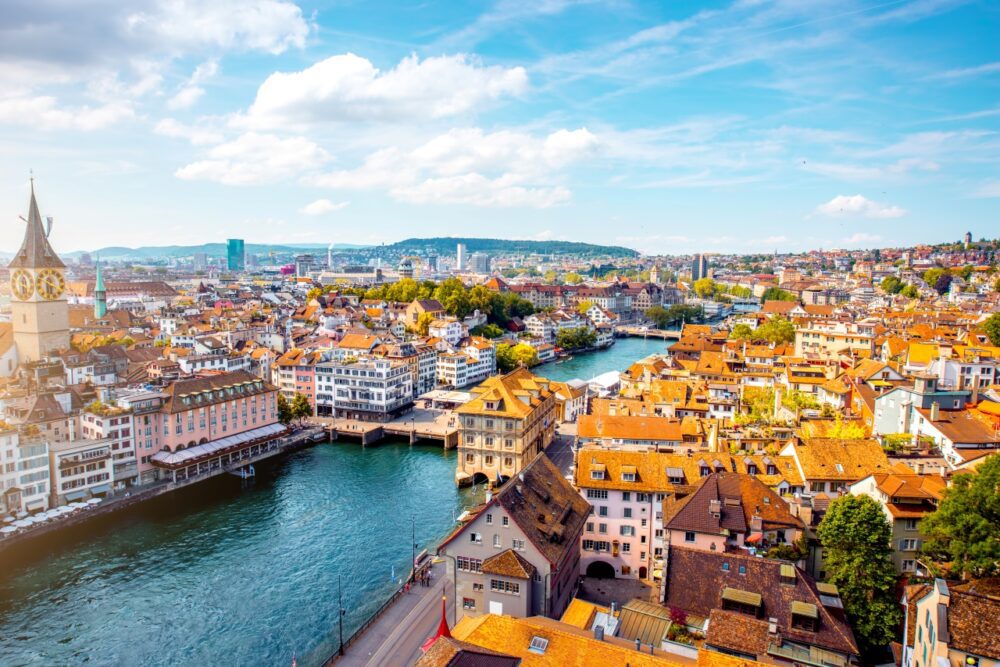
Zurich is Switzerland’s largest city and its financial heart, but don’t be fooled into thinking it’s all business. The city is full of culture, with a lively art scene, world-class museums, and a beautiful old town. I spent hours wandering through the Altstadt, the old town, admiring the narrow lanes, medieval buildings, and churches like the Grossmünster and Fraumünster.
Zurich’s location on the shores of Lake Zurich means there’s plenty of opportunities for outdoor activities. I took a boat ride across the lake and enjoyed stunning views of the city with the Alps in the background. If you visit in summer, take a dip in one of Zurich’s badi (lakeside swimming areas) or rent a bike to explore the city’s extensive cycling paths.
2. Bern

The capital of Switzerland, Bern, is one of the most charming cities I’ve visited. Its medieval old town is a UNESCO World Heritage site, and walking through its cobbled streets feels like stepping back in time. The Zytglogge, a 13th-century clock tower, is the city’s most famous landmark, and watching the clock’s mechanical figures perform their little show every hour was a highlight.
Bern is also a fantastic base for exploring the surrounding countryside. I took a short train ride to the Gurten, a local hill offering panoramic views over the city and the distant Alps. In the heart of the city, the Bundeshaus (Swiss Parliament) is worth a visit, and don’t miss the chance to see the famous Bear Park, where you can observe the city’s symbol up close.
3. Lucerne
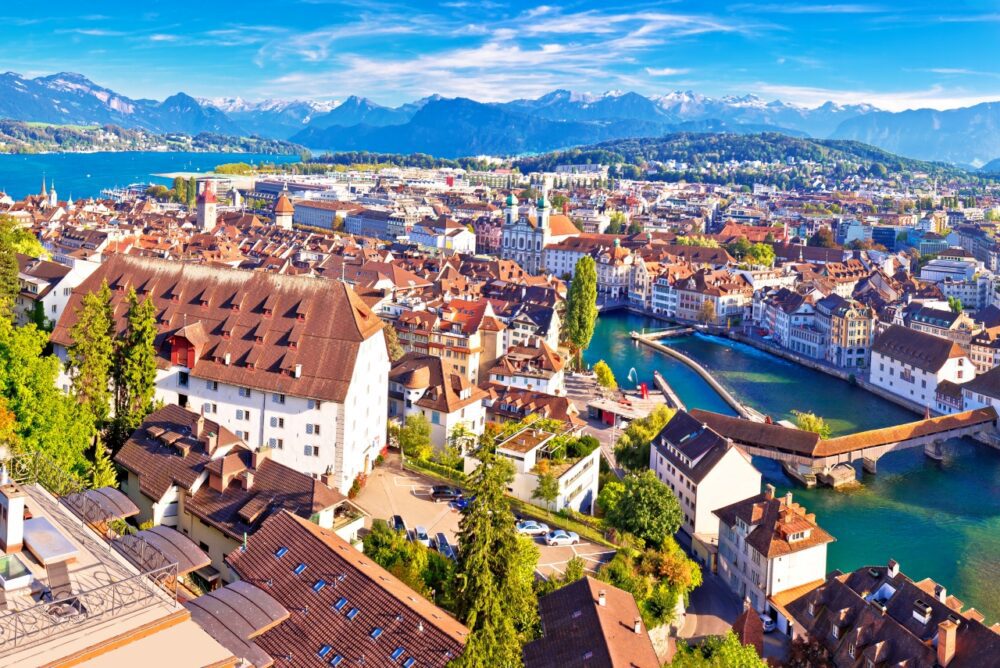
Lucerne is often described as the most beautiful city in Switzerland, and after visiting, I couldn’t agree more. Nestled between mountains and set on the shores of Lake Lucerne, the city is postcard-perfect. The medieval Chapel Bridge and its water tower are iconic landmarks, and strolling along the lakefront promenade was one of the most peaceful moments of my trip.
Lucerne is also a gateway to the Swiss Alps, and I highly recommend taking the Golden Round Trip to Mount Pilatus. The journey involves a boat ride across Lake Lucerne, a ride on the world’s steepest cogwheel railway, and a descent by cable car with spectacular alpine views. For more hiking and adventure, Mount Rigi and Mount Titlis are also nearby.
4. Geneva
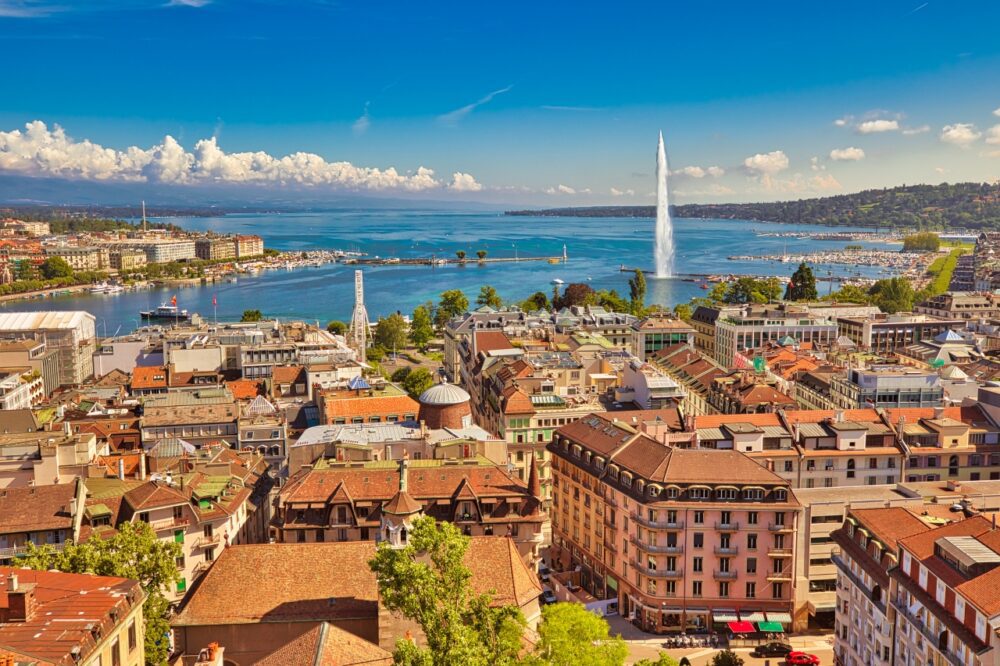
Geneva is a cosmopolitan city with an international feel, thanks to its role as the headquarters of the United Nations and the Red Cross. The city sits on the edge of Lake Geneva, and a boat ride around the lake offers stunning views of the Jet d’Eau, a giant water fountain that’s one of Geneva’s most recognisable landmarks.
One of my favourite spots in Geneva was the Parc des Bastions, home to the impressive Reformation Wall, which commemorates key figures of the Protestant Reformation. If you’re interested in science, the CERN laboratory, home to the Large Hadron Collider, offers fascinating tours. Geneva’s mix of history, culture, and international influence makes it one of Switzerland’s most intriguing cities.
5. Lausanne
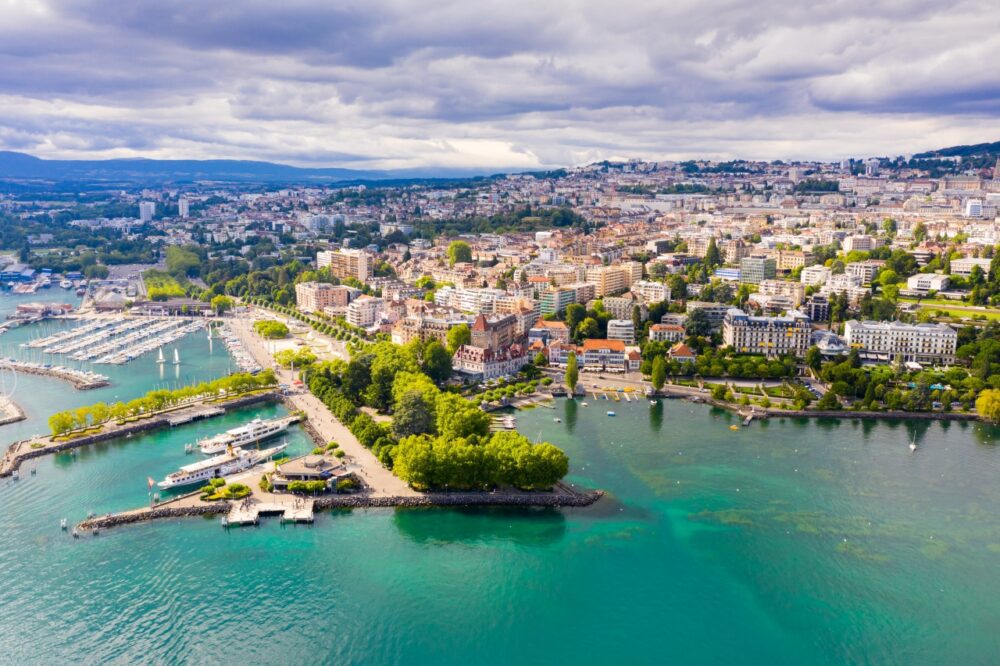
Just up the lake from Geneva, Lausanne is a hilly, vibrant city that’s famous for its role as the headquarters of the International Olympic Committee. I spent a fun afternoon at the Olympic Museum, learning about the history of the games and seeing memorabilia from past Olympic events. The museum’s location on the lakefront is perfect for a relaxing stroll after your visit.
Lausanne’s old town is full of character, with steep streets leading up to the impressive Lausanne Cathedral. The city also has a lively arts and café scene, particularly in the Flon District, where I found plenty of quirky galleries, trendy bars, and live music. Lausanne is a great place to experience a mix of history and modern culture.
6. Interlaken
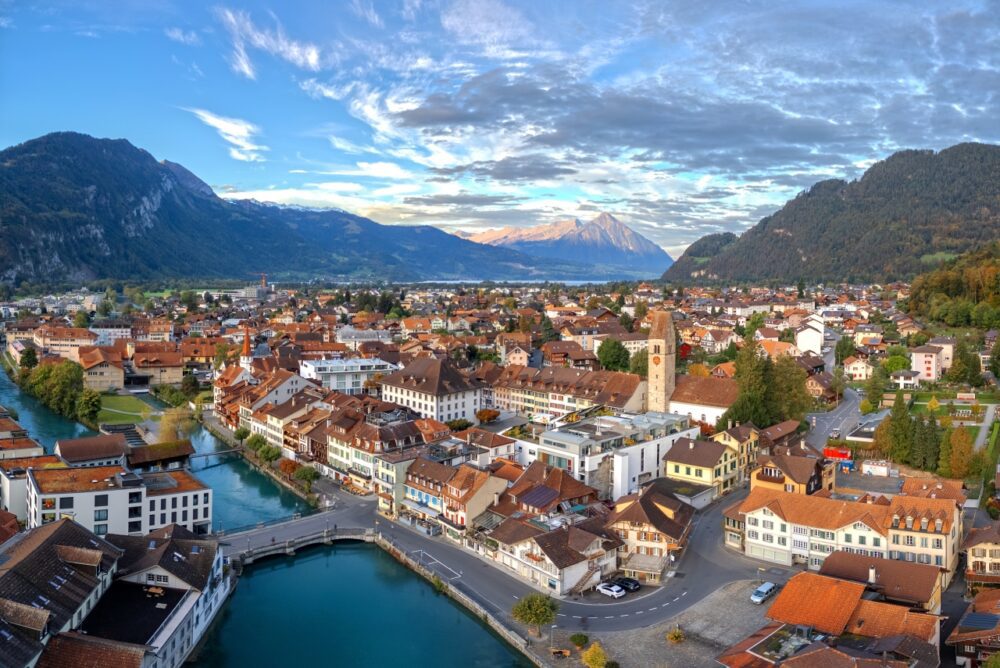
Interlaken is a dream for adventure seekers. Nestled between Lake Thun and Lake Brienz, and surrounded by towering peaks, this town is the perfect base for outdoor activities. I tried paragliding here for the first time, soaring over the lakes with the Alps as a backdrop—an unforgettable experience. In winter, Interlaken becomes a gateway to some of the best ski resorts in the Jungfrau region.
For a more relaxed experience, take a scenic boat ride across Lake Thun or hop on the Harder Kulm funicular for panoramic views of Interlaken and the surrounding mountains. If you’re feeling adventurous, there are also plenty of hiking trails in the area, ranging from easy walks to more challenging alpine treks.
7. Zermatt
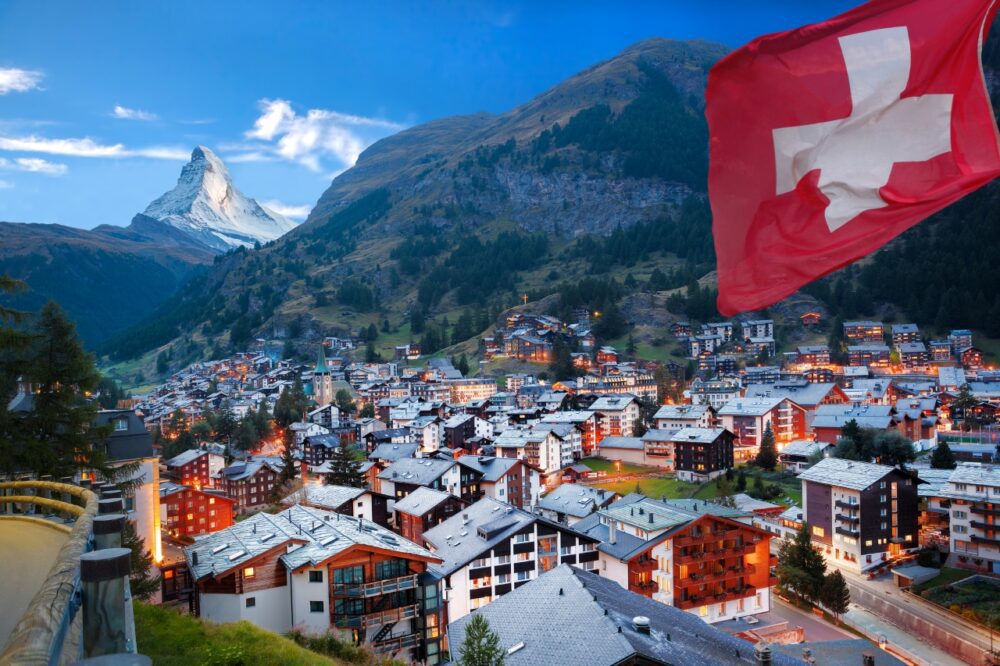
Zermatt is all about the Matterhorn. This iconic mountain, which inspired the shape of the Toblerone chocolate, dominates the skyline and is a magnet for climbers, skiers, and photographers. I took the Gornergrat Railway up to the viewing platform, where I was rewarded with some of the most breathtaking views I’ve ever seen—snow-capped peaks, glaciers, and the jagged Matterhorn itself.
Zermatt is car-free, which adds to its peaceful, alpine charm. The village is full of traditional wooden chalets, cosy restaurants, and luxury hotels. Whether you’re skiing in winter or hiking in summer, Zermatt is an outdoor lover’s paradise.
8. Basel
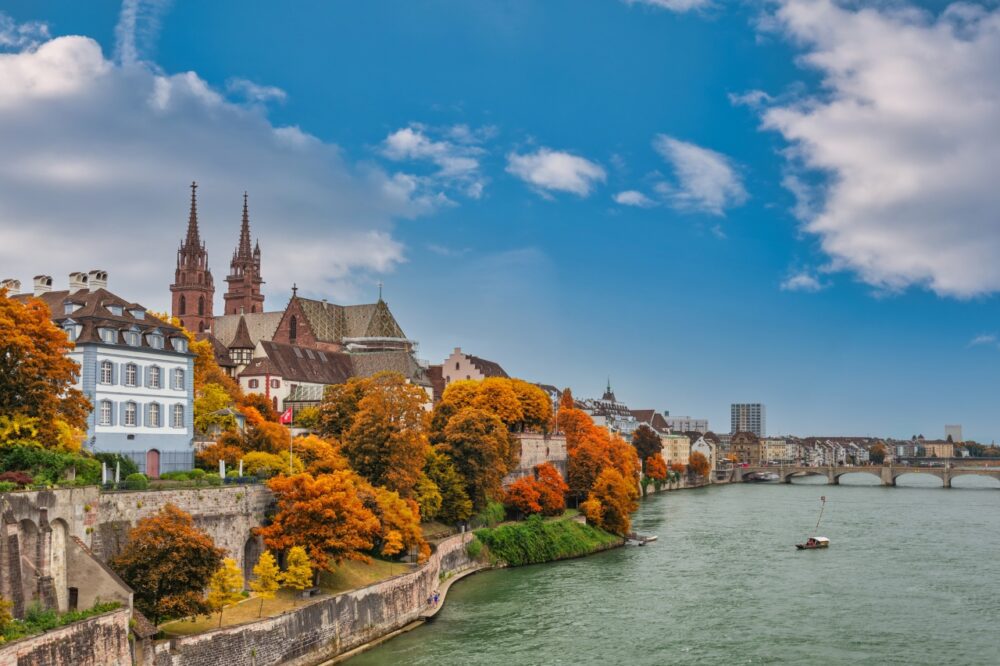
Situated on the border with France and Germany, Basel is a cultural hotspot, known for its world-class museums and art galleries. I spent hours wandering through the Fondation Beyeler and the Kunstmuseum, which house impressive collections of modern and classical art. Basel is also famous for its Art Basel fair, one of the most important contemporary art events in the world.
Basel’s old town is charming, with medieval buildings, cobblestone streets, and the impressive Basel Minster. I also loved walking along the Rhine River, which flows through the city and is a popular spot for swimming in summer. Basel’s rich cultural scene and riverside location make it a fantastic city to explore.
9. Lugano
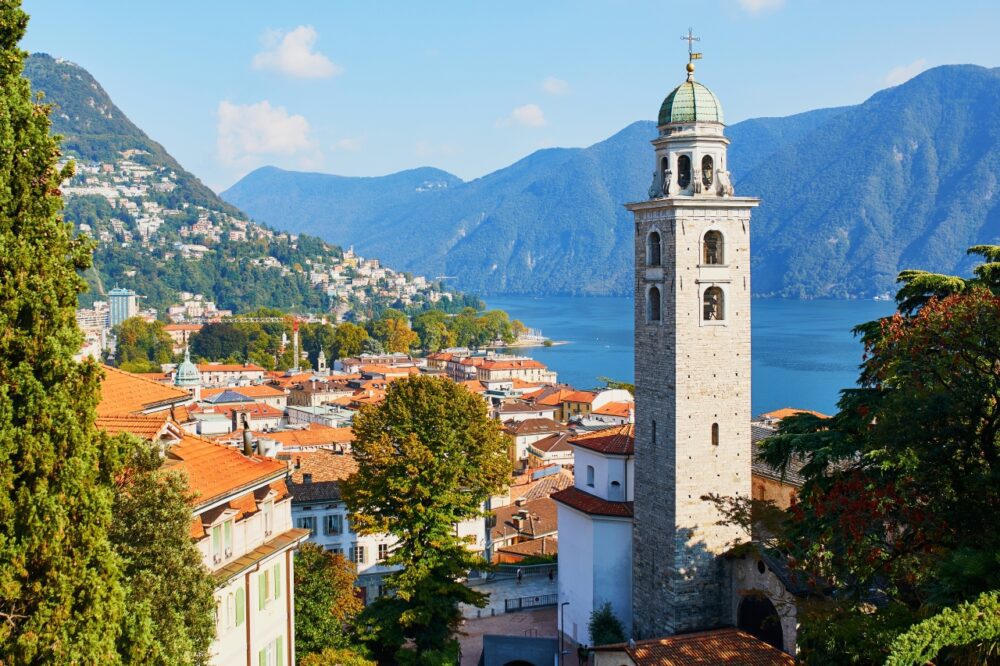
Lugano is located in the Italian-speaking part of Switzerland, and the town has a distinctly Mediterranean feel. Set on the shores of Lake Lugano, the town is surrounded by lush mountains, and the waterfront promenade is lined with palm trees and elegant villas. I took a boat ride across the lake and enjoyed the peaceful atmosphere, with the Alps in the distance.
Lugano is also a great base for hiking. I took a funicular up Monte Brè, which offers fantastic views of the lake and the surrounding mountains. The town’s relaxed, southern vibe, combined with its stunning setting, makes Lugano one of the most charming places to visit in Switzerland.
10. St. Gallen
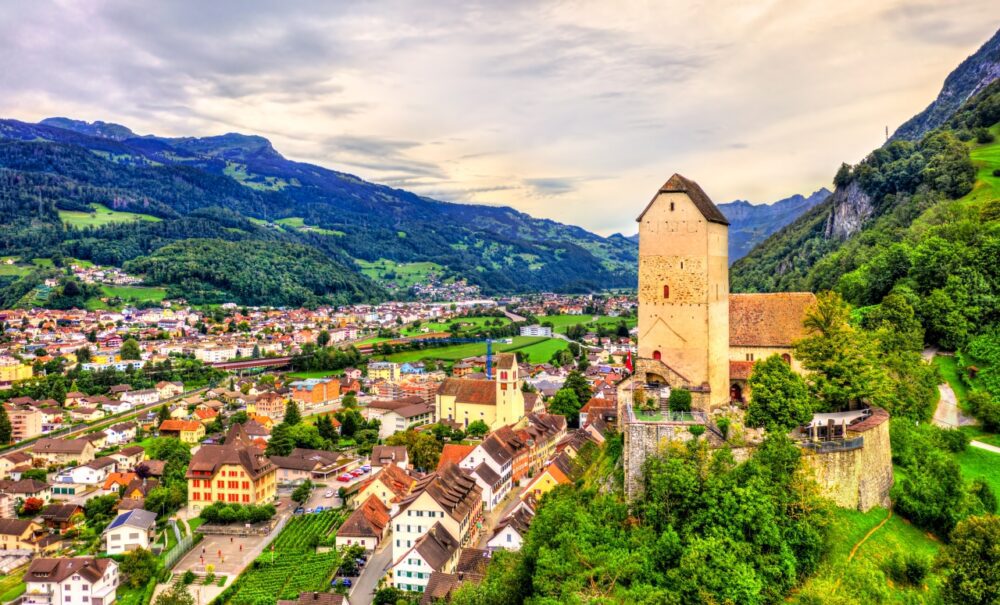
St. Gallen is home to one of the most important religious sites in Switzerland—the Abbey of St. Gall, a UNESCO World Heritage site with a stunning baroque cathedral and a library that’s considered one of the most beautiful in the world. Walking through the library’s ornate, wood-panelled halls, filled with ancient manuscripts, was like stepping into a different era.
The town itself is charming, with narrow streets, colourful buildings, and a lively student population. I spent a pleasant afternoon wandering through the old town, exploring the many shops and cafés. St. Gallen’s mix of history, culture, and student energy gives it a unique and vibrant atmosphere.
Travel Tips for Switzerland
Getting Around Switzerland
Switzerland’s transport system is one of the best in the world, with trains, buses, and boats connecting every corner of the country. Swiss Federal Railways (SBB) trains are efficient, offering scenic routes between cities like Zurich, Geneva, and Bern, as well as into the Alps. Regional trains and buses cover smaller towns and remote areas. The Swiss Travel Pass is great for tourists, offering unlimited travel on public transport and discounts on mountain cable cars and attractions. Renting a car is unnecessary unless you plan to explore very rural areas.
Best Time to Visit Switzerland
The best time to visit Switzerland depends on your activities. Summer (June to August) is ideal for hiking, swimming in lakes, and enjoying outdoor festivals. Winter (December to February) is perfect for skiing and snowboarding in the Swiss Alps, with famous resorts like Zermatt and St. Moritz. Spring (April to May) and autumn (September to October) offer mild weather, fewer tourists, and stunning landscapes for those who prefer sightseeing or hiking without the summer crowds. Each season has its charm, so plan according to your interests.
Passport and Visa Requirements for Switzerland
Switzerland is part of the Schengen Area, so travellers from EU/EEA countries can enter with just an ID card. Visitors from US, UK, Canada, Australia, and many other countries can stay visa-free for up to 90 days within the Schengen Zone. Your passport should be valid for at least three months beyond your planned departure. If you’re visiting neighbouring France, Italy, or Germany, border crossings are seamless, but always carry your ID or passport.
Currency and Banks in Switzerland
Switzerland uses the Swiss Franc (CHF), not the euro, though some tourist spots may accept euros (often at a poor rate). ATMs are widely available, and credit cards are accepted almost everywhere. However, it’s always a good idea to carry some cash, especially in rural areas or small cafes. Tipping is not obligatory but appreciated—rounding up the bill or leaving 5-10% for good service in restaurants and taxis is common.
Language and Useful Phrases to Know
Switzerland has four official languages: German, French, Italian, and Romansh, depending on the region. In Zurich and much of central and eastern Switzerland, German is spoken, while Geneva and the west speak French. Italian is used in Ticino. Most people speak English, especially in tourist areas, but learning a few key phrases in the local language is appreciated. Try “Grüezi” (hello in Swiss German), “Merci” (thank you in French), or “Grazie” (thank you in Italian).
Budgeting and Costs for Switzerland
Switzerland is known for being expensive, but you can manage costs with some planning. Public transport is excellent and affordable with passes like the Swiss Travel Pass. Accommodation, especially in cities like Zurich and Geneva, can be pricey, so consider staying in guesthouses or Airbnbs to save money. Eating out is costly, but local supermarkets offer affordable options, and many mountain hikes are free to enjoy. For attractions, look for Swiss Half Fare Cards or museum passes to cut down on entry fees.
Conclusion
Switzerland is a country that truly has it all—stunning natural beauty, charming cities, rich culture, and world-class outdoor adventures. Whether you’re hiking through the Swiss Alps, exploring the historic streets of Bern, or enjoying a relaxing boat ride on Lake Geneva, Switzerland is a destination that will leave you wanting more.
What I love most about Switzerland is how easy it is to experience so many different things in one trip. You can be skiing in Zermatt one day and enjoying modern art in Basel the next. And with the country’s efficient public transport system, getting around is a breeze. Switzerland is a place where adventure meets culture, and no matter what kind of traveller you are, it’s a country that will capture your heart.
